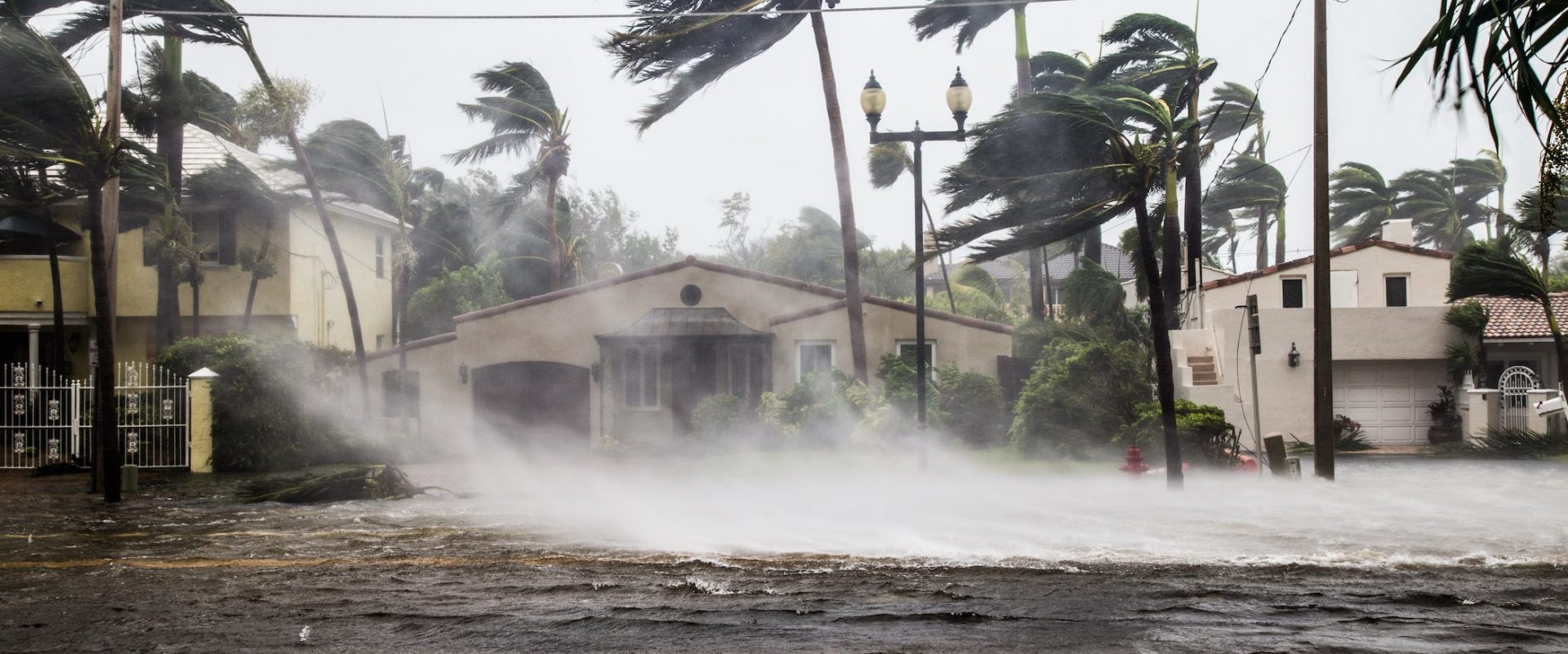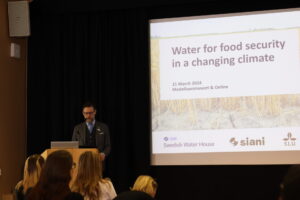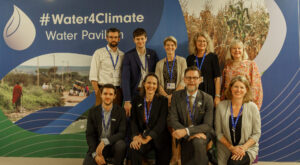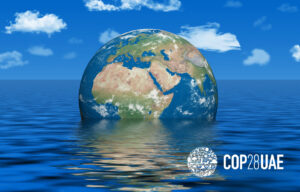- SIWI – Leading expert in water governance
- /
- Latest
- /
- New IPCC report shows the need for more water-related climate solutions
New IPCC report shows the need for more water-related climate solutions

The alarming new report from the Intergovernmental Panel on Climate Change, IPCC, shows how the world must drastically ramp up climate action to stop or slow down the changes caused by global warming. Here is how water can help us develop more effective solutions.
On 9 August the IPCC presented results from its Sixth Assessment Report, drawing on results from more than 14,000 research papers. The main messages are that the climate crisis is “unequivocally” caused by humans, that temperatures are rising faster than expected and that we must prepare for a future with more frequent and severe extreme weather events.
Compared to its previous report in 2013, the IPCC is now focusing more on “climate sensitivity”, how the climate responds to emissions. Recent progress in climate modelling has made it possible to better understand the impact on natural systems, including feedback loops. A worrying conclusion in the report is that the capacity of oceans and land to act as carbon sinks seems to be weakening, which would mean that the same level of greenhouse gas emissions will be resulting in larger temperature increases than have so far been the case.
One of the most important findings of the new report is that “continued global warming is projected to further intensify the global water cycle, including its variability, global monsoon precipitation and the severity of wet and dry events”. This could mean that food security is at risk in parts of the world where agriculture relies on predictable rainfall patterns. The report also warns that heavy rainfalls could become more frequent and more intense; that droughts will increase in some regions; that fire weather will become more frequent and that oceans will be warmer and more acidic.
“The new IPCC report clearly demonstrates the need for a new approach to climate policy, where the water cycle is given a prominent role. The report emphasises the role of water in climate change and the many growing risks we see that are linked to water – from changing rainfall patterns to extreme droughts and floods. Countries must respond urgently to these growing risks and place water at the centre of their climate policy. This is crucial to developing the solutions needed,” says Malin Ingemarsson, landscapes and climate expert at SIWI.
Ahead of the next international climate meeting COP 26 in Glasgow in November, countries are expected to update their nationally determined contributions (NDCs) to the Paris Agreement but so far only 110 countries have done so. The new stark warning from the IPCC is putting renewed pressure on all countries to ramp up their ambitions. But many governments are unsure of which policies are most effective and low-income countries often lack the financial means to take the actions needed.
To help more countries and institutions understand the role of water in climate policy, SIWI has joined forces with the UNDP-SIWI Water Governance Facility, the Deutsche Gesellschaft für Internationale Zusammenarbeit (GIZ), the Potsdam Institute for Climate Impact Research and the Stockholm Resilience Centre (SRC). The organizations are co-writing a report to generate new knowledge on how water solutions can help countries mitigate climate change, not just adapt to its consequences.
“We already have identified some important findings, even though the final report will not be released until next year. What is especially interesting is that we have found a much stronger role for water in climate mitigation than has typically been assumed. This can help more governments find the right policies,” Malin Ingemarsson explains.
Initial findings from the report will be presented at World Water Week (23-27 August) and the next international climate meeting COP 26 in November. Much of the focus is on solutions that simultaneously mitigate climate change by boosting nature’s ability to store carbon and strengthen natural systems that reduce the risk or impact of extreme weather events like droughts or floods.
“The new IPCC report clearly shows that this must be a top priority for countries. The report warns that nature’s ability to sequester carbon is weakening dangerously. To prevent that from happening, we must do everything we can to restore ecosystems. At the same time, the IPCC report demonstrates how other climate risks are also accelerating, with more hunger and disasters. We need to focus on climate solutions that address these threats simultaneously,” Malin Ingemarsson says.








